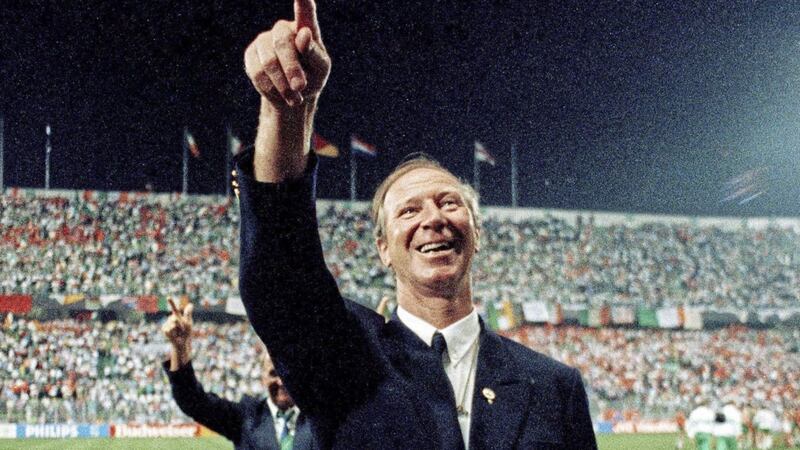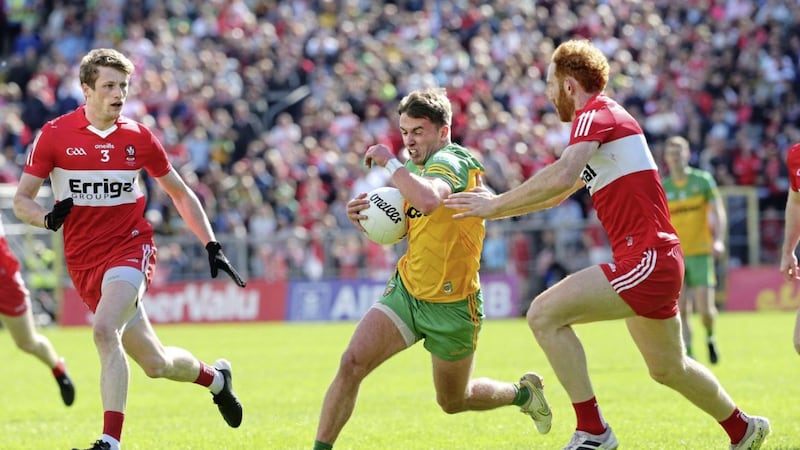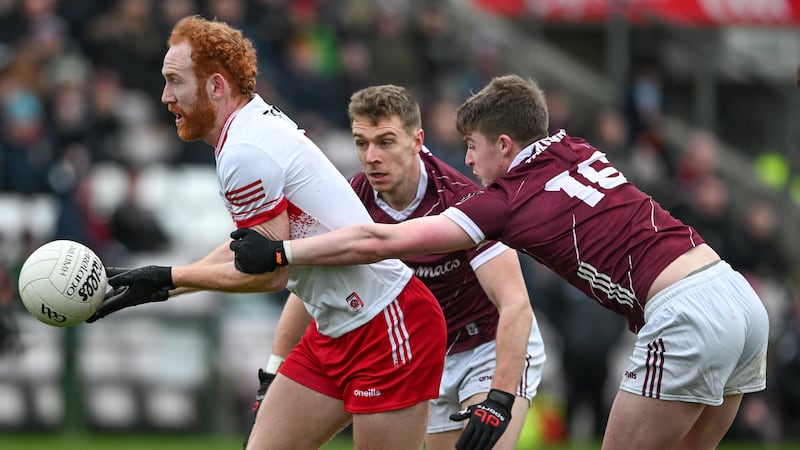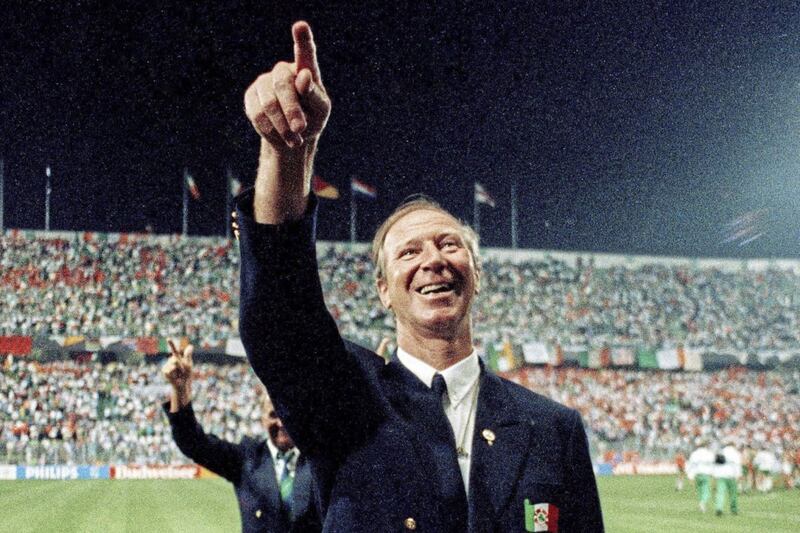As we face into at least one more month of lockdown, any light visible at the end of the tunnel is the fact that GAA activity might return by the first week of March.
Of course, it could all change.
For us GAA fanatics, it has been a year to forget.
Our kids remain isolated from their friends and team-mates, and players will be finding the camaraderie and isolated nature of their current training programmes difficult.
The GAA acted early in planning for a more condensed League and Championship and I suppose half a loaf is better than no bread.
For the Ulster teams in Division One, the frustrating aspect is the familiarity of playing against teams they would ordinarily meet in the Ulster Championship.
As a player the most enjoyable part was getting out of the province and playing those teams operating in Leinster, Munster or Connacht.
The overnight stays never bothered me, they always turned out to be great team-bonding sessions, despite the fact that no drink was involved on most occasions.
Now the training weekends were always a bit different.
They became a staple of any team’s inter-county preparation and, to be fair, we stayed in some of the best hotels in the country.
From the outside it may seem like an unnecessary cost, but I can tell you that the preparation and organisation that goes into those weekends is really phenomenal.
It is probably worth 10 training sessions at home. This time together as a group always brings the team closer together, but the training sessions can be some of the best of the season.
Indeed, club teams increasingly see it now as key preparation for their own season.
My own club Saval made an annual pilgrimage to Donegal town for many years and, to be fair, the intention was always to start the weekend on the right note with a training session on arrival.
Unfortunately, you had to go through the bar to the gym and, needless to say, the drive there had worked up a thirst. The only heavy lifting done was the carrying of a tray of pints.
On another occasion, on a pre-Championship training weekend in Glasgow with Down, we arrived and booked in with the strict instructions that training would be starting later that evening.
The manager at the time was arriving on a later flight and, when he did arrive, there had been a miscommunication of some kind with the coach of the team.
While we failed to inform the manager of the coach’s plans,
we were given strict instructions to not leave the hotel, restrict it to three pints and be in bed at 12am.
Like all these things, matters quickly escalated and, in end, the manager ending up drinking with a significant number of us in the residents’ bar well into the wee hours of the morning with the curfew quickly forgotten.
Some of the more hardcore lads obviously got the ‘am’ and ‘pm’ mixed up into the bargain and missed the training the next morning after going walkabout.
It goes without saying that we had a fantastic weekend, but I’m not sure how much fitter we actually got.
While success eluded us (maybe this was why), we had some fantastic times as a team.
During the Christmas period I watched the documentary ‘Finding Jack Charlton’ which I found it to be a very compelling watch, exploring Jack’s impact on a group of players and indeed an entire nation.
It was also poignant at times.
Dementia can be desperately debilitating and frustrating for anyone who lives with the disease and for those who care for them. The programme shed light on the effect this disease had on ‘Big Jack’ himself.
All those experts in soccer will have their own opinions on Charlton’s style. And perhaps it was archaic to the purist.
However, the Republic of Ireland team of that period, with all the talent on paper, had never qualified for a major tournament prior to Charlton’s arrival.
Jack Charlton – with a wee bit of luck – changed that.
We remember the ‘put ’em under pressure’ call to arms which Charlton invoked and, tactically, it was simple – primarily about putting the ball into spaces behind the defence and following it up by closing the opposition down as quickly as possible.
Jurgen Klopp and Pep Guardiola are innovators in the world of management and in how they set up their teams, and it is common knowledge that they look to win the ball back by pressing the opposition as high up the field as possible as soon as the ball is lost.
Sound familiar? What I am saying is that we all think when we manage a team or begin to coach, or indeed play the game, we need to reinvent some innovative tactic or style.
In reality, we are all guilty of over-complicating it for those most important people – the players.
I view the fundamentals of Gaelic football in simple enough terms and would argue that those fundamentals haven’t changed really for years.
New buzzwords have been introduced into our GAA vocabulary now too: ‘Transition’ is attacking.
‘Restarts’ are kick-outs. It also has to be ‘positive re-enforcement’ now.
My father was manager for most of my underage teams and, at that time, positive re-enforcement meant that I didn’t get a clip.
Similarly, that particular era of Jack Charlton’s management was simple yet effective.
Importantly, perhaps critically, his style promoted and garnered a fantastic team spirit in the squad and that shone through throughout the film.
Charlton’s love of Paul McGrath was like a father-son relationship.
Charlton got the best out of McGrath because he expertly man-managed him.
‘Big Jack’ realised that one size didn’t fit all when it came to players He also allowed the players the freedom to enjoy the get-togethers and those nights out became important reasons why the team became collectively strong and ultimately were willing to die with their boots on for one another on the field. That Republic of Ireland side had a spirit few other national teams possessed.
You won’t find that type of ‘off-field’ advice or tutelage in any sports science journal. And in an era of ultra-professionalism, access to social media and being in the public eye 24/7, it is almost dangerous for any athlete now to be seen to be enjoying themselves.
The GAA has gone down this route with drink bans and codes of conduct. And you will find that this discipline at inter-county level, while admirable, hasn’t made it any more enjoyable for player or manager. Quite the opposite.
Early retirements, burnt-out bodies and mental exhaustion doesn’t make for pleasant memories.
Thankfully I can never say playing at inter-county level was a chore.
I didn’t always get the balance right alongside living a life, but I truly loved it. I truly enjoyed it.
Of course, I would have loved the silverware. Who wouldn’t? But in its absence, the memories will do me.



